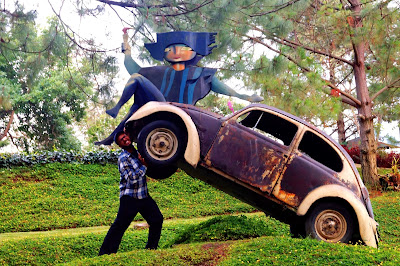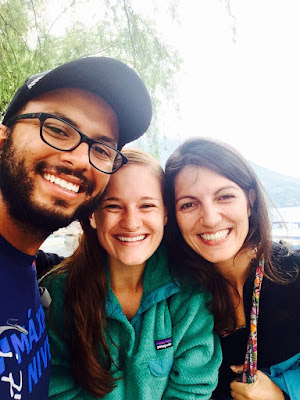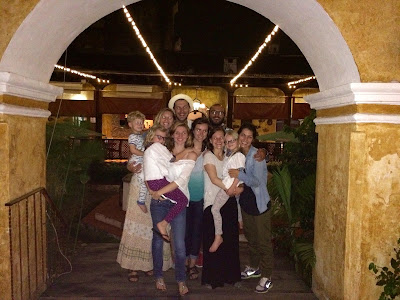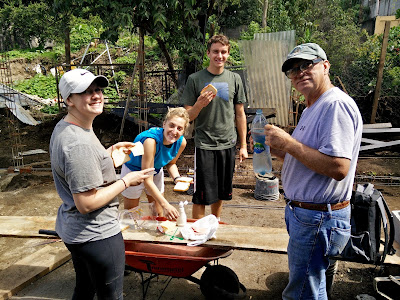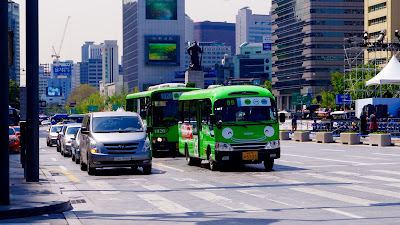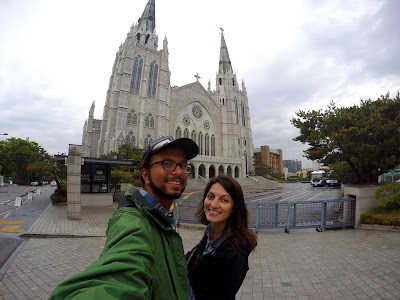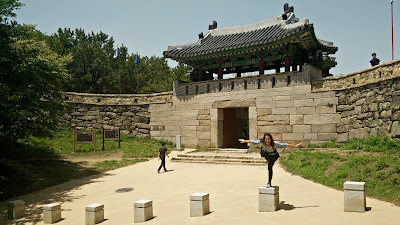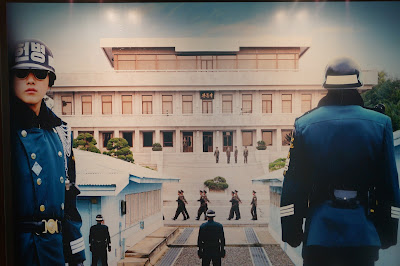Explorers & Pirates Tales - Part I
One of the things Di and I wanted for our trip was some degree of flexibility. To be able to just go wherever the wind blows and suddenly find an old pirate's map and stick to it until we find the “X” and get the treasure. If you allow me to entertain you, and myself, with some fantasy I'll tell you our unplanned adventure around Central America all the way to Cuba. All of course with the most emblematic theme of the Caribbean: Pirates! Are you ready? Let's go!
After 4 long days of walking through the jungle, the Missionaries of San Isabel reached the base of the mighty Pacaya volcano. They were a caravan of 30 people, mostly priests from the Spaniard convent of Madrid and some guards. A few adventurers and merchants came along in search of promising thrill and business opportunities. Among them there was a couple of explorers, William & Diana, traveling the new world in search of its wonders. The caravan had to stop for a day by the foot of the mountain to replenish its supplies and then continue their journey to Antigua, the colony's new capital.
Meanwhile, the explorers wanted to seek a little more adventure while the caravan didn't resume the journey in the very next morning. Will & Di had read about that place beforehand and knew exactly on what kind of quest they wanted to venture and its name is Pacaya, a magnificent mountain which regularly spits ash clouds into the sky. Recently, in a once-in-a-life-time event, blazing lava flowed through its crater making it one of the most dangerous places around. The flowing magma was the powerful heat source that the explorers needed to finally show to the world one of their most amazing discoveries: rock melted marshmallows. The climb up to the top was going to be hard and they could not afford to miss the Missionaries Caravan company to Antigua. They went looking for a local that could be hired to guide them into the crater, but their luck was changing as fast as the wheather around this parts of the world often does.
Big dark thick clouds gather around blocking the view of the top of the mountain. The indigenous tell them that this is a sign that Huracan, the storm God, is coming to the mountain and advise to stay out of the way. None of the indigenous would go up, and once the storm comes and goes, there would be no more magma rocks hot enough to melt their marshmallows. In the middle of the conversations and pleadings for help, two pirates that overheard the commotion approached the explorers with a proposal: they would take them to the crater no matter the weather as long as they got some of the so called unique delicacy and some gold.
The pirates looked promising: both young and strong women with odd features and sun tanned skin. Both spoke English and their accent was unmistakably from England even tough the pirate ways tainted their speech with the most egregious blasphemies. William was specially skeptical, as usual, considering that one of the pirates, Sal, had a wooden leg. The explorers didn't have any other options and the signs of a storm were getting clearer by the minute. Hastily they made an agreement, took only the essential gear for a fast hike and upwards they went.
The way up was steep and covered in fresh volcanic ashes. Some indigenous were preparing altars with offerings to the thunder god. The pirates started talking about their lives. Sal told them that her foot had rotten in one day after a sand stingray stung her while fishing on the beach. The sting ripped her leather boots and her skin like butter and the poison was so painful that she was glad when Shireen, the other pirate which happens to also be a self-taught practitioner, sawed it off. Plus, she drank all the Guatemalan run she could manage, for free. Shireen had the most treacherous eyes, a look that is mesmerizing and fierce at the same time. Her eyes were big and oak in color with black eyeliner around them. A trait typical of the dry hot mountainous parts of the middle east called Kurdistan that no longer exist. A war extinguished her home country so she fled her city, at a young age, and never stopped. She eventually ended up at the shore, where she came across and joined a pirate boat almost by accident, but quickly learned the ways of the sea and burglary. Sal was from the British Colony, India, son of rich merchants that lost it all due to the ruthless greed of the empire. Moved by rage and vengeance she swore to recover her family's riches by stealing from the British crown, so piracy was an easy decision. Both ended up hired by the Dutch pirate Laurens de Graaf and stormed the Caribean towns and waters for a few years until a hurricane destroyed the ship. The only survivors where the Captain and the two girls. Since there's very little honor code in this business, they just walked away from the ruined ex-captain. Now the duo is looking for a promising pirate captain to take them back to the sea.
They had no idea what time of the day it was, but a couple of hours had passed since they started walking when they reached the first viewpoint. They were at the lowest side of the crater. From there they couldn't see the peak as it was even more covered with dark stormy clouds but they could clearly see their way down to the mouth of the mountain. And there, lying peacefully, were thousands of fresh magma rocks still steaming. They could easily see the melted rocky formations from the last magma eruption a few days ago and knew that those were deadly grounds. Melted magma cools off in a matter of hours but just on the surface, creating a crust that's only a few centimeters thick that looks like solid rock. Many have stepped on these crust just to break trough it and fall in a pool of melted magma, but just a few survived to tell the story and show their scorched limbs. A huge thunder shook the skies and the first drops of rain started to fall over the crater. The four hikers started going down the hill as fast as they could, trying to reach the hot rocks on time.
When they reached the bottom, the rain was pouring and, as the water hit the warm rocks, it evaporated, filling the mouth of the mountain with a warm mist that condensed on William's glasses. They were walking around the rocky paths for almost half an hour looking for a really hot spot when Sal's wooden leg fell trough the crust of a magma deposit and almost fell in if it wasn't for Diana holding her on time. The hole on the crust was the perfect spot they needed. William took some marshmallows from his backpack while Diana gathered a few wooden sticks from the floor and sharpened them with a knife. William stuck a marshmallow piece into the stick and slowly lowered it inside the burning hole. In a few seconds, he took it back out and there it was, a perfectly melted marshmallow, with a light caramel color almost melting off the stick. He offered the first piece to Diana, who took a bite, and gave the other to him. It was scrumptious! An ordinary marshmallow tasted so much better when quickly melted by the fresh magma. Sal and Shireen started doing the same. All of them were soaked and laughing, eating one marshmallow after the other.
William was trying to write some notes on his notebook when he realized that the storm was only getting worse. The water was quickly rolling in to the crater threatening to trap them on the inside and making them miss the Missionary convoy. They had to get out promptly. They gathered their gear, stuffed a few more melted marshmallows in their pockets and mouths and started going up. It was a very hard, slow climb. When they were almost at the top a lighting struck an old tree just a few hundred meters away from them on the top of the crater's border. They were dazed for a few seconds by the explosion of sound and light. After a few more minutes of arduous walking they finally reached the burning remains of the tree but had no time to waste so they started running down back to the camp through the jungle. The pirates were leading, guiding them down the same path as they had just come up but the it had turned into a small white water river due to the storm. Going down was easier than going up so they ran most of the way. The storm was still fierce. Thunder and lighting constantly illuminated the dark skies and dazzled their senses. At some point they ran through some kind of indigenous ceremony and a few of them started running along with in the rain, smiling and shouting to their thunder God. The four of them noticed that they were also euphoric, smiling constantly. It was truly an unforgettable moment.
They reached their camp at the bottom of the mountain in one piece but completely soaked. In a small pouch Diana was carrying some of the melted marshmallows that remained dry and delicious. She ate one and gave the others to the little native kids that were always around them. After a few minutes of uncertainty and hesitation the kids finally bit their marshmallows, quickly they changed their minds and devoured them. In the meantime, William was talking with Shireen and Sal, asking for directions to a lake close by named Atitlan. From a trunk full of rolled parchments, Sal took one out and handed it to William. It was a hand-drawn map of the region. She drew a route to the lake on the map and wrote down a few important tips. William & Diana thanked both pirates, bought the map and said good bye. The party of four disbanded in good terms, but Diana had a feeling that they would see each other again. The explorers left the next day with the missionary Spaniard caravan to Antigua. The rain only stopped two days later.
 |
| Enjoying the "beautiful" view of the volcano =P |
That's it! More pirate adventures await for us, the explorers, so stay tuned. Next stop: Lake Atitlan.
Cheers!





